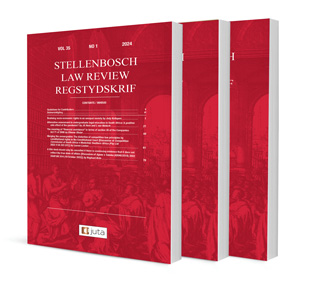Realising socio-economic rights in an unequal society

Realising socio-economic rights in an unequal society
Author: J Kollapen
ISSN: 1996-2193
Affiliations: Justice of the Constitutional Court of South Africa
Source: Stellenbosch Law Review, Volume 35 Issue 1, 2024, p. 1 – 20
https://doi.org/10.47348/SLR/2024/i1a1
Abstract
The colonial and apartheid systems created widespread poverty and inequality which, in tandem with each other, shaped the lives of millions of our people. The Constitution of the Republic of South Africa, 1996, beyond recognising this legacy, contains a clear and unconditional commitment to fundamentally changing it. This contribution explores the achievements and challenges in redressing poverty and inequality, two key elements of the legacy of apartheid, which continues to plague South African society 30 years after the first democratic elections. It focuses on the relationship between equality and socio-economic rights, and the evolving constitutional jurisprudence on these rights. It proceeds to examine the implications of the chasm between the public and private spheres of our society in redressing the inequalities in our society, raising the question of redistributive justice. Thereafter this contribution examines the role of the courts in addressing poverty and inequality. It identifies the important role that context-sensitive adjudication can play, while also highlighting the institutional constraints of the judiciary. The contribution concludes by exploring the reasonableness model of review for adjudicating socio-economic rights claims. It identifies the features of reasonableness review that enable courts to promote government accountability for socio-economic rights realisation while respecting the separation of powers doctrine. The paper concludes that while courts have a vital role to play, addressing poverty and inequality is ultimately a joint responsibility shared by the people of this country.